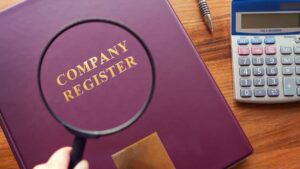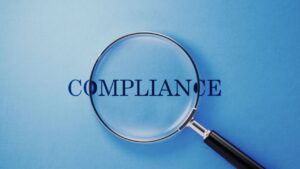Accounting and Corporate Regulatory Authority (ACRA) is the regulator of business registration in Singapore. Before registering your business in Singapore, there is a set of basic requirements that every aspiring business owner in Singapore must complete.
These items form the core identity of the business in the eyes of the government and must be prepared in advance.
Requirement 1: Company Structure
The most consequential decision a founder makes at the outset is choosing the right business structure. This is far more than a legal formality. It is the foundational choice that will dictate:
- the extent of personal liability,
- the applicable tax obligations
- the complexity of ongoing compliance
- and the business’s future ability to grow and attract investment.
In Singapore, entrepreneurs have several primary structures to choose from, each with distinct characteristics. The options available for registration with ACRA are:
- Sole Proprietorship
- Partnership
- Limited Partnership (LP)
- Limited Liability Partnership (LLP)
- Private Limited Company (Pte Ltd)
Click on the links above to find out more about each business structure. You can also read our comparison guide between the different business structures.
A Private Limited Company (Pte Ltd) is the most common and popular company structure, chosen by both local and foreign entrepreneurs.
Requirement 2: Name Of Business
The business name is the primary identifier of a business. The name must be unique and receive approval from ACRA before incorporation of your business can proceed.
The Rules
ACRA has specific rules to ensure clarity and prevent confusion in the marketplace.
A proposed business name must be unique and not identical or confusingly similar to any existing entity registered with ACRA. It cannot be offensive, vulgar, or otherwise undesirable. Furthermore, certain words, such as “Temasek,” are prohibited by the Minister for Finance.
The Process
The first step is to use the free entity name search tool on ACRA’s BizFile portal to check if the desired name is available. Once a suitable and available name is identified, it must be formally reserved through an application on BizFile. This reservation costs S$15 and, once approved, secures the name for 120 days.
The full business registration must be completed within this period, or the name will be released back to the public.
Requirement 3: Defining Your Business Activity (The SSIC Code)
ACRA requires a clear description of the company’s intended business activities. As part of the application, the business must specify its primary and, if applicable, secondary business activities.
This classification is done by selecting the appropriate Singapore Standard Industrial Classification (SSIC) code.
The SSIC is a 5-digit code that categorizes economic activities, helping government agencies understand the nature and industry of the business.
How to Find The Right SSIC Code
Entrepreneurs can find the correct SSIC code(s) by using the search tool available on the BizFile portal, the Singapore Department of Statistics website or by consulting the e-Adviser on the GoBusiness portal, which guides users to the most relevant code based on their business description. Having this code ready is a mandatory part of the registration process.
Requirement 4: Establishing Your Registered Business Address
Every business entity in Singapore is required to have a registered local address.
The Requirement
The business must provide a physical address in Singapore that is accessible to the public during normal office hours. A Post Office (P.O.) Box address is explicitly not permitted. This address will be part of the public record for the company.
Different Options For Registered Address
- Commercial Address: A leased office, co-working space, retail shop, or industrial warehouse.
- Home Office Scheme: It is possible to use a residential address (both HDB flats and private properties) as the registered business address, provided the business meets the scheme’s criteria and obtains prior approval from the relevant authorities, the Housing & Development Board (HDB) for public housing or the Urban Redevelopment Authority (URA) for private property.
- Virtual Office Address: Many corporate service providers offer a virtual office service, which provides a legitimate physical address for registration and mail-handling purposes. This is a popular and fully compliant option for businesses that do not require a physical presence.
Requirement 5: Gathering Personal Particulars
ACRA requires detailed and accurate information for every individual who holds a key position within the business.
To ensure transparency and accountability, the personal details of all owners, partners, directors, shareholders, and managers must be submitted during registration.
The List
The following information should be compiled for each individual involved:
- Full name as it appears on official identification
- Identification number (NRIC for Singapore Citizens and PRs, Passport number for foreigners)
- Nationality
- Complete residential address
- Contact details including an email address and phone number
Requirement 6: Requirements For The Different Company Structures
Once the universal preparations are complete, the next step is to gather the specific information and fulfill the unique prerequisites for the chosen business structure.
6.1. Sole Proprietorship & Partnership
This is the simplest structure, with correspondingly straightforward requirements.
Personnel
- The owner (for a sole proprietorship) or all partners must be at least 18 years old.
- They must be a Singapore Citizen, a Singapore Permanent Resident (PR), or a holder of an eligible work pass, such as an EntrePass.
- For Locals: A common reason for applications that failed is the Medisave requirement. All Singaporean and PR owners/partners must ensure their Medisave contributions are fully paid up or are on an active GIRO payment plan with the Central Provident Fund (CPF) Board before the application can be approved.
- For Foreigners: If the sole owner or all partners are not resident in Singapore, they are required to
- Appoint an “authorised representative” who is a natural person ordinarily resident in Singapore.
- Additionally, foreigners must engage a registered filing agent (e.g., a corporate secretarial or accounting firm) to submit the registration application on their behalf.
Capital
There is no legal requirement for a minimum amount of paid-up capital. The capital for the business is simply the personal funds invested by the owner(s).
Fees
- Name Application Fee: S$15
- Registration Fee (1-year): S$100
- Total Initial Cost: S$115
6.2. Limited Liability Partnership (LLP)
The LLP introduces a slightly higher level of complexity, primarily concerning its personnel structure.
Personnel
- An LLP must have a minimum of two partners. These partners can be individuals (local or foreign) or corporate bodies.
- It is mandatory to appoint at least one manager who is a natural person, at least 18 years old, and ordinarily resident in Singapore. This resident manager is a key requirement for compliance.
Capital
Similar to a partnership, there is no minimum capital contribution stipulated by the LLP Act.
Fees
- Name Application Fee: S$15
- Registration Fee: S$100
- Total Initial Cost: S$115
6.3. Private Limited Company (Pte Ltd)
As the most formal and regulated structure, the Private Limited Company has the most extensive list of pre-registration requirements.
Personnel
- Shareholders: A Pte. Ltd. must have at least one shareholder.
- Maximum of 50 shareholders
- Shareholders can be individuals or corporations, local or foreign
- Singapore allows for 100% foreign ownership of shares.
- Directors: A minimum of one director is required.
- At least one director must be ordinarily resident in Singapore.
- This means they must be a Singapore Citizen, PR, or a holder of a specific work pass (like an EntrePass or Employment Pass) with a local residential address. This is a non-negotiable legal requirement.
- Company Secretary: Every company must appoint a qualified company secretary who is a resident of Singapore within six months of its incorporation date.
- It is important to note that if the company has only one director, that same individual cannot also serve as the company secretary.
Capital
A Private Limited Company (Pte Ltd) must have a minimum initial paid-up share capital of at least S$1. This capital can be increased at any time after incorporation.
Information
- Details of the company’s share capital, including the total number of shares, the value per share, and the currency.
- Company Constitution: This document serves as the rulebook for the company, governing its internal management and operations. Entrepreneurs can choose to adopt the standard “Model Constitution” provided by ACRA, which is suitable for most standard companies, or they can engage a legal professional to draft a customized constitution to meet specific business needs.
Fees
- Name Application Fee: S$15
- Incorporation Fee: S$300
- Total Initial Cost: S$315
Conclusion
The path to launching a business in Singapore is clear and well-defined. The journey can be summarized in a logical sequence:
- Select the business structure that aligns with the venture’s risk tolerance and long-term ambitions.
- Secure a name for the business
- Define the business activity
- Establish a registered office address
- Gather all personal particulars
- Assemble the documents and personnel required for the chosen business structure
Only after these preparatory stages are complete should an entrepreneur proceed with the formal online registration.








